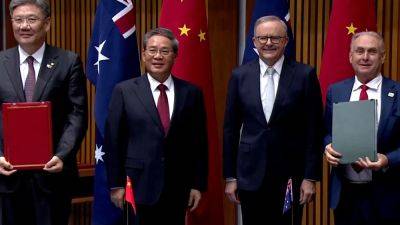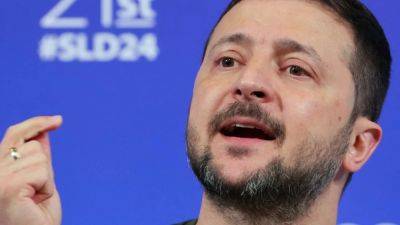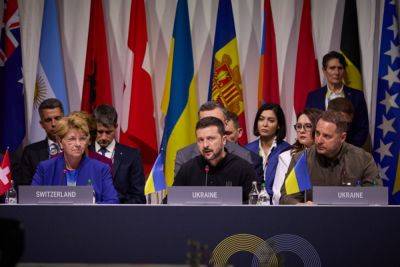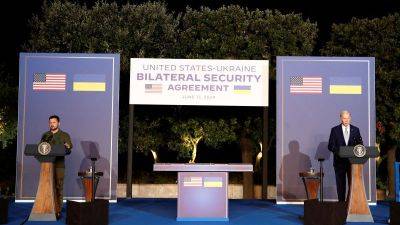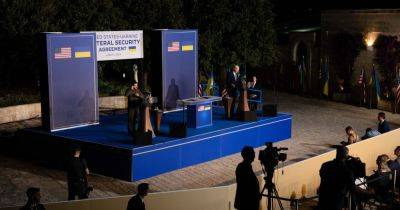Shangri-La Dialogue shows US-China rivalry extends far beyond Asia
More than 100 governments and international organisations, including the US, have reportedly confirmed their participation, whereas China has refused. Speaking to the media outside the conference, Zelensky described China as “an instrument in the hands of Putin”, and accused Chinese diplomats of seeking to undermine the peace summit.
02:29
China urged to help end Ukraine war by President Volodymyr Zelensky at Shangri-La Dialogue
In his speech, Marcos took aim at China without mentioning it by name. He roundly condemned the “illegal, coercive, aggressive and deceptive actions [that] continue to violate our sovereignty, sovereign rights and jurisdiction”.
Marcos himself underscored the centrality of US-China competition to the security landscape. Their rivalry is “constraining the strategic choices of regional states”, he said, as well as “exacerbating flashpoints” and creating new security dilemmas.
The meeting between the two defence ministers was described by the Chinese side as “positive, practical and constructive”, and by the US as “clear, direct, candid, firm and professional”. In the meeting, Austin criticised China’s behaviour towards the Philippines, and expressed concern over China’s growing nuclear, space and cyber capabilities.
Dong denounced foreign support for separatists in Taiwan and the incitement of provocations by the Philippines. One example that rankled China was the sideline meeting in Singapore that Austin held with his Japanese and South Korean counterparts.
Austin faced the difficult challenge of simultaneously reassuring allies, stabilising the relationship with China and defending the US commitment to both Ukraine and Israel.
As if to underscore this balancing act, he travelled next to Cambodia in an


